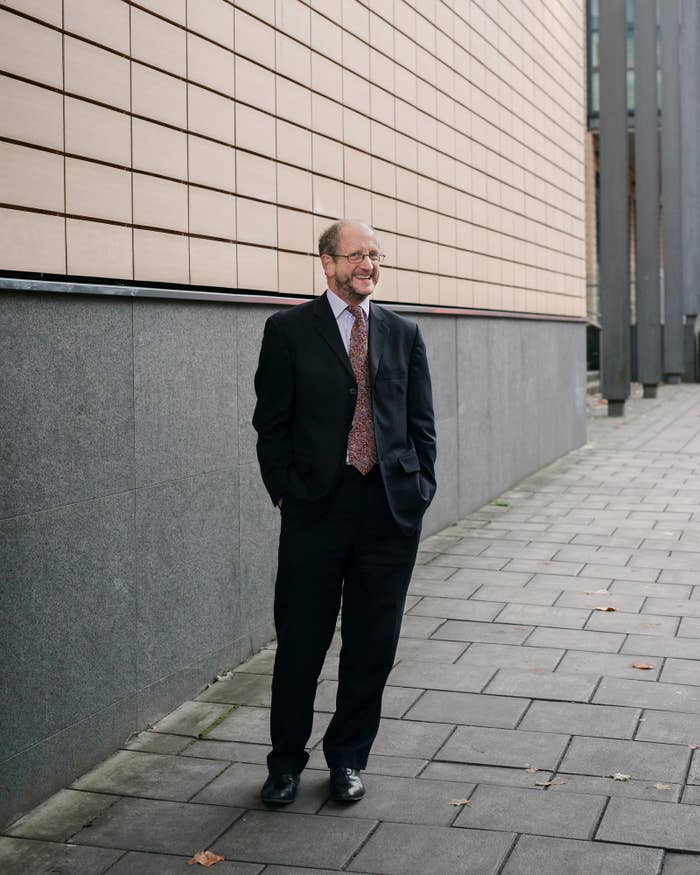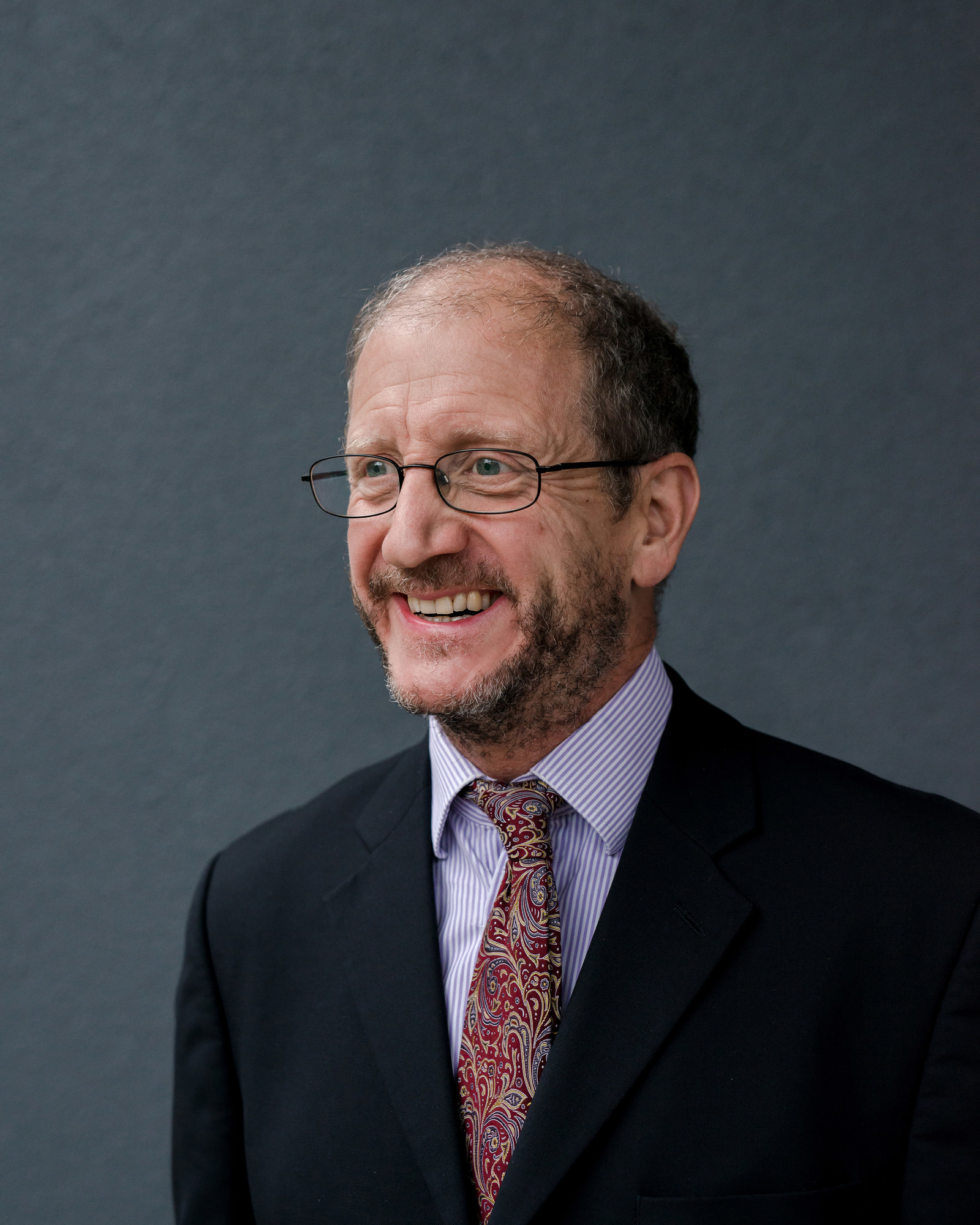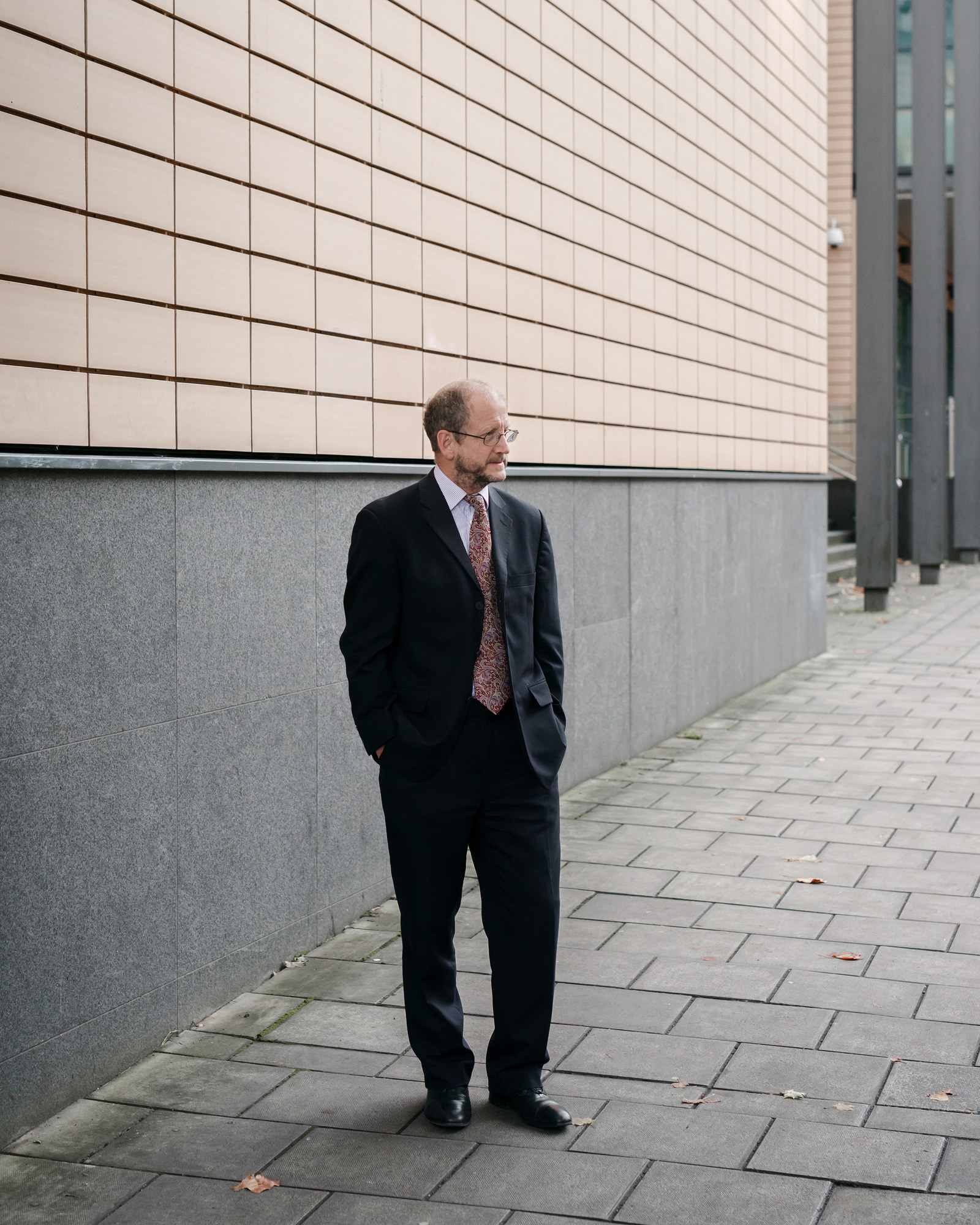Stephen Wildblood isn’t like other judges. A Buddhist who runs to court every day listening to trance music, the most senior family circuit judge in South West England has built a reputation for sticking his neck out on behalf of the disadvantaged families trying to navigate the legal process alone.
In another significant break with convention, Wildblood has given an interview to BuzzFeed News about his efforts to help the growing number of people appearing in a court without a lawyer. He also revealed that he goes home and weeps over cases where he’s had to remove children from their mother’s care.
British judges very rarely speak to journalists, but Wildblood agreed to meet after BuzzFeed News revealed the number of people seeking help to represent themselves in court because they had no lawyer had risen by 520% since 2011. After cuts to legal aid were brought in by the coalition government in 2012, almost nobody gets free legal help in private family law cases.
Speaking in his Bristol office, Wildblood is plainly worried by the gulf in education and expertise of those trying to get justice without a lawyer to take them through the process.
“What happens when a man’s a builder and he wants contact with his child and the mother’s a primary school teacher?” he asks. “What happens when you have a Somali father whose first language isn’t English and a Somali mother, who equally doesn’t speak English? How do they actually get into court? First of all, they get over 140 pages of documents if they want to apply for contact, and I’m sure they help with translation, but how do they ever trust the system to get into it in the first place? So that’s a huge problem. And how do they fill out forms?”

Wildblood has first-hand experience of the challenge of legal forms. “I filled out forms for my father for a power of attorney. I got them wrong and they came back. It cost me a fortune, it cost me about over 400 quid because they just sent them back and said, ‘No, you filled out this wrong. You got the wrong person to sign it.’ Well, you know, I’m a judge. I’ve been a lawyer since 1980. And I can’t fill out forms properly. How do they do it when it’s in a foreign language?”
As a judge, Wildblood is not allowed to talk about politics, but he has championed education and support programmes for people without lawyers. In the last couple of years he has been involved in setting up legal education classes, an advice website, a free fortnightly drop-in evening with lawyers, a multi-faith support centre, interactive theatre productions on family courts and debates – all with the aim of helping people without lawyers prepare for the courtroom.
“I’ve been trying to set up a system here where people who don’t have the benefit of lawyers will understand or be able to find support,” he says.
He is helping another judge, Stephanie Cope, to partner with universities and set up pioneering family law classes that will use law students to teach people how “to go about being in court when they haven’t got a lawyer”.
Wildblood says judges are quickly learning new skills to cope with the reality of the modern family courtroom, where around 80% of cases involve at least one party without a lawyer.
In the cases he hears where only one side has a lawyer, he believes it's up to him "to try and redress the balance. It’s your job to look after the person concerned. You are there to do justice. That’s what you took an oath to do in the first place and it’s at times like that the oath does matter. You’re going to do justice to everyone, not just the person who’s got a ritzy lawyer but actually the person that hasn’t got a ritzy lawyer and you think needs helping.”
He adds: “The idea that you sit there like a ninny and say absolutely nothing at all while this goes on. If you think that you have that imbalance in court it’s for you to right it… If there’s something that’s bothering me in court and is not being said then I’m afraid I’m going to ask it, because when I walk down the court steps that’s my judgment – it’s nobody else’s and I’m responsible for it.”
Throughout the interview he pulls himself back from political commentary but says he is someone who is happy to “stick my neck out”, and does his best to do so with long similes.
“I often think of my job as a bit like being a football coach. I don’t choose the players, I don’t choose the stadium, I don’t choose the budget, I don’t even choose the footballs or the lines. I get what I’m given. My job as the designated family judge here is to make the best of what I’m given.”
On any given day, Wildblood can be deciding how often – if at all – a parent sees their children. The responsibility weighs on him. “Last night I probably had about four and a half hours' sleep. I’ve got a really big case starting tomorrow [about contact with children] for three days, and you wake up at three in the morning thinking. And once you start thinking you don’t get back to sleep.”
His hardest cases are when he is forced to remove a child from their parents altogether. “I’ve got six kids, and I think the most painful thing you can do to anyone is to take their children away from them. And not only take their children away from them but to say to them that it’s their fault, in effect – that there’s something so fundamentally wrong with them that they can’t even do what nature decrees should be done, that parents should look after their children.”

He adds later: “You feel dreadful. I always say it’s a bit like presiding over a funeral. That’s how it feels... Just pain, loss, separation. So it’s absolutely awful.”
His eyes redden as he says this. When asked if he has ever cried after taking a child away from a parent, he says quickly, “Yes, yes of course,” recounting the story of a young mother on her knees pleading with him not to take away her child when she gave evidence. “I couldn’t read out the judgment, I just had to hand it down in writing.”
The judgment he referred to was published last month. In it, Wildblood’s anger bubbles off the page. He rallies at a system that sees local authorities spend thousands of pounds paying for a psychologist to argue in court that a mother is too unstable to bring up her children, while spending nothing on earlier therapy to change that situation.
The judgment comes to what he calls the “wretched conclusion” that a 5-month-old baby of a vulnerable mother be put up for adoption. But in reaching it, Wildblood lashes out at the lack of help available to parents before their situation reaches a court.
“This is a desperately sad case where, for the second time in six months, this mother faces the loss to adoption of a child that she loves deeply,” he writes. “Her grief is very apparent. This is yet another truly wretched public law case.
“It is also yet another case of a young mother with a background in which she has experienced extreme abuse and deprivation whom, I am told by everyone involved in this case, has not been offered therapeutic support.”
He questioned: “Is it right that this mother should not yet have been offered therapy, particularly bearing in mind that her first child was born three years ago and was himself the subject of lengthy proceedings?”, adding: “If she had been offered therapy at an early stage, is there not at least a possibility that the outcome of these proceedings might have been different?”
According to the latest government figures, more than 90 children are taken into care every day. Wildblood won’t comment on whether he thinks local authorities’ approach to parents is too risk-averse but his judgments – and emotional response to care proceedings – suggest it is a concern.
He also wants to know what can be done to help parents after their children are taken away. Speaking about the scene he encounters outside his court “goodness knows how many times,” he says: “After all this ‘article 8 convention’ [right to private family life], all this clever legal language, ‘proportionality, necessity and legality’, all the stuff that we come out with... parents not understanding a word. And then they go out and they don’t know what’s happened and their child is taken away and they don’t have anywhere to go and there’s no support because legal aid stops: bang.”
Wildblood is also passionate about the need to offer therapy and parenting support to people so they don’t end up in the courts at all. “In the judgment, the point I was making is why, before proceedings were even thought about, was that sort of mother not provided the sort of therapeutic help that she so obviously needed?”
Most family judges do not muddy their hands with organising the help that might prevent people having to return to court. But Wildblood says he is determined to.
Since bumping into the coordinator of Christian charity the National Parenting Initiative “in the dog food section of Sainsbury’s” he has been encouraging struggling parents in his court to go to them for help and avoid care proceedings.
“She was saying, when I was talking about the sort of work I was doing, well, ‘Why don’t you ring me and I’ll see about the sort of support we can give to parents?' So on occasions, if I’m in court, I’ll see a family that needs help and I’ll email her... I did it twice on Friday. Straight away she’ll come back ‘yes’ and straight away she’ll provide some parenting support. It’s not social services, it’s completely away from that.”
He says the strategy has already helped keep families together. “A family came over from India, there was a 14-year-old and a younger child. They weren’t looking after the children properly, so she, her husband, and a group of them went round, plumbed in a washing machine, got the children going to school. They helped the children get to school. And at the next hearing the social services withdrew their application.”

Wildblood consciously distances himself from the trappings of judicial seniority. He doesn’t want BuzzFeed News to use his official picture, which shows him in a traditional wig, because he looks “like something out of a Restoration comedy”. Before the interview starts he dashes off to make cups of tea.
When the city’s main family court building flooded in June, Wildblood arrived in his running gear and, unable to retrieve a suit, decided to go and buy one in Primark to avoid presiding over a hearing in his sweaty jogging clobber.

At 59, Wildblood is younger than many judges and intimately aware of the challenges of parenthood. His six children range in age from 31 to 9-year-old twins and he juggles childcare duties with his wife Emma Wildblood, a family law solicitor. “By 10 to 6 tonight I will be in my running gear, running to my car which is three miles away, picking up my daughter at quarter past 7 from Brownies,” he says.
His chief hobby is, he says, book writing. Ahead of the interview he emails over a draft of his novella To Ollie, which he is planning to publish to raise funds for a therapy charity. The protagonist, Jonathan, is a lawyer who, like Wildblood, has a penchant for the underdog and runs into court listening to trance music.
Given the media constraints on judges, the book says many of the things he cannot.
It is full of anger about the greed at some of the lawyers and clients caught up in the family courts – and the trend towards abandoning less lucrative legal aid work.
The villain of the story is a partner in the law firm called Arabella, branded a “stupid hard-nosed fucking bitch” after saying “the future does not lie in legal aid” because it’s not profitable.
In a postscript to his novel, still writing in character, Wildblood summarises an almost identical case to the one he has described of a woman whose child is taken away. He says it is the character’s motivation for writing the book, concluding: “Surely it’s time to say enough is enough. Help the parent and you act in the best interests of the child – that is nature’s way. It is not rocket science.”
Wildblood has set up a multi-faith support group “to offer spiritual and emotional help” to the parents caught up in family proceedings. “Because actually if someone dies you start thinking about god; if someone takes your kid away, you start thinking about the bigger picture. People often will turn to religion, faith, in times of real stress.”
Describing the setup, he says: “They go the civil justice centre and they will see someone, maybe a lawyer even, who’ll say ‘Do you want to talk?' That’s all, not ‘Do you want to pray?'”
Wildblood, who describes himself as a Buddhist, says that in trying “to set up as many support systems as we can to help people,” he is driven by a sense of moral purpose.
“I’m really keen ... to restore this idea of moral cause, of doing something that is really socially worthwhile. When all the rubbish happens, the horrible side of things, the hours of work and the piles of paper and the dreadful things you see, if you feel you’re doing something that is not only worthwhile on a case but is systemically justifiable, then that can carry you forward.”

